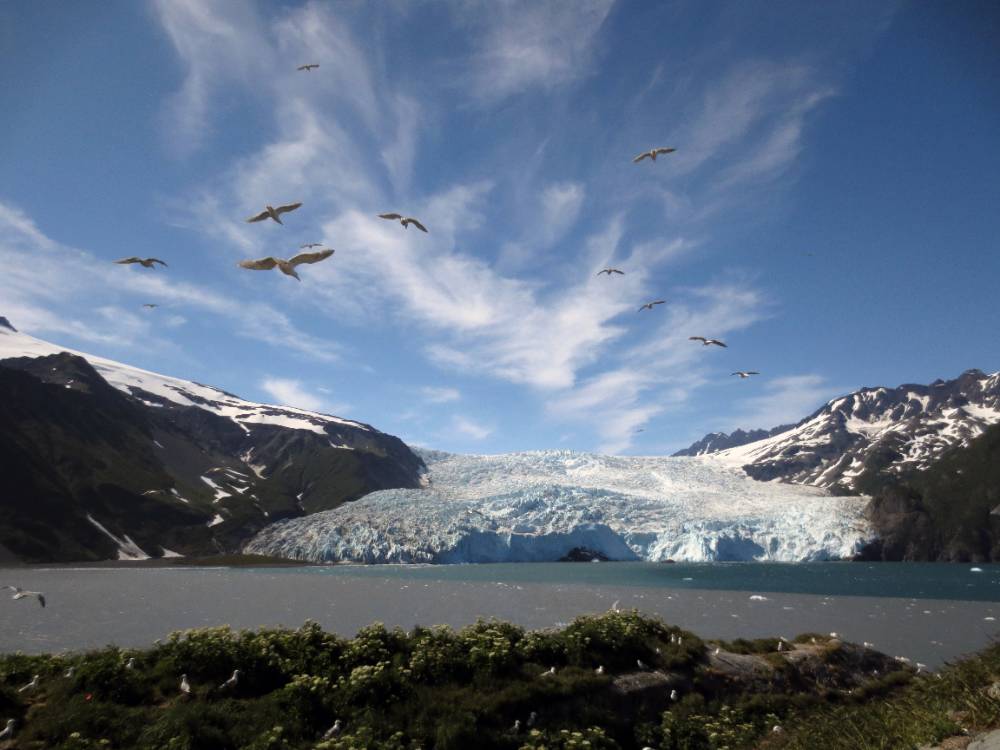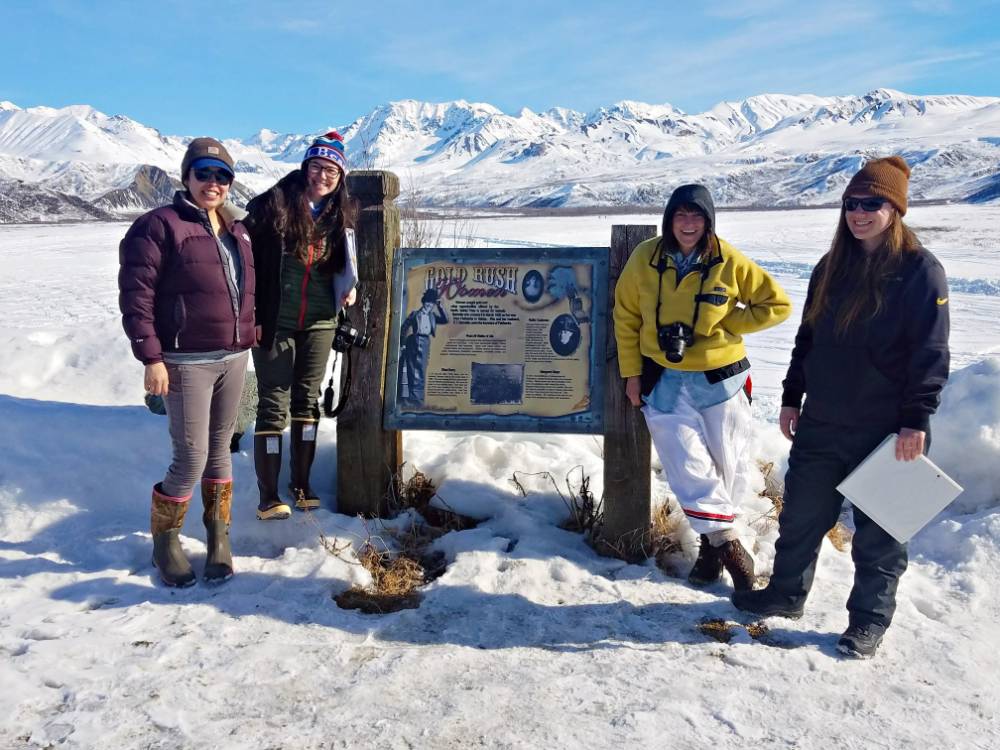Bachelor of Science in Climate and Environmental Change
Why study Climate and Environmental Change?
Climate change is having multifaceted effects on our world, with impacts on weather, ecosystems, food production, land management, social systems, and more. Effective responses to these challenges will require college graduates with broad scientific knowledge who can communicate effectively to different audiences. The B.S. in Climate and Environmental Change is an interdisciplinary program of study that combines coursework in natural science, environmental management, society, and culture with opportunities to acquire additional employable tools such as computer programming, remote sensing, and GIS. Many courses in the program focus on the unique challenges of the circumpolar North, where climate is changing most rapidly.
Students choose among four concentrations that emphasize different aspects of climate change: environmental earth science, physical processes, ecological processes, and sustainability. The concentrations prepare students for different types of environmentally-related work in agencies and industry, such as environmental scientist, technician, consultant, or policy analyst; and for graduate study in a variety of disciplines, including earth system science, resource management, and ecology.


Bachelor of Science Program Overview
The Climate and Environmental Change B.S. is an interdisciplinary program that trains students as both scientists and communicators. Students take a wide range of courses in science, environmental management, technology, society, and culture, while emphasizing an area of special interest within one of four concentrations:
- Ecological Processes
- Environmental Earth Science
- Physical Processes
- Sustainability
Regardless of concentration, graduates of the Climate and Environmental Change B.S. program will meet the following objectives:
- Apply scientific knowledge and concepts gained in foundational courses to the practice of scientific inquiry, with appropriate communication of the outcome
- Demonstrate mastery of advanced scientific knowledge and skills in at least one specific discipline related to climate and environmental change
- Communicate both in writing and through video presentation in accordance with professional norms on issues relevant to environmental change
- Apply technical or data skills to analyzing and solving problems related to environmental change
- Integrate natural science with social and/or cultural literacy within the context of climate and environmental change with a focus on human decision-making about the environment
- Synthesize and reflect on knowledge and skills learned about climate and environmental change across courses in the program
Why UAF?
Alaska is on the front lines of climate change. Alaska and the Arctic are warming
at twice the rate of the global average. The state’s tundra and boreal forest ecosystems
are undergoing rapid change, with a potential for significant feedback to climate
as sea ice melts and permafrost thaws. These rapid changes are impacting Alaska's
abundant natural resources and the people who rely upon them, creating significant
economic, social, and cultural challenges that are being felt here first.










